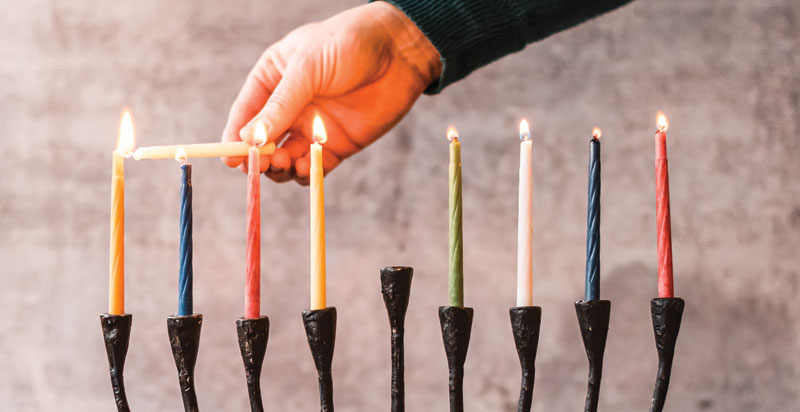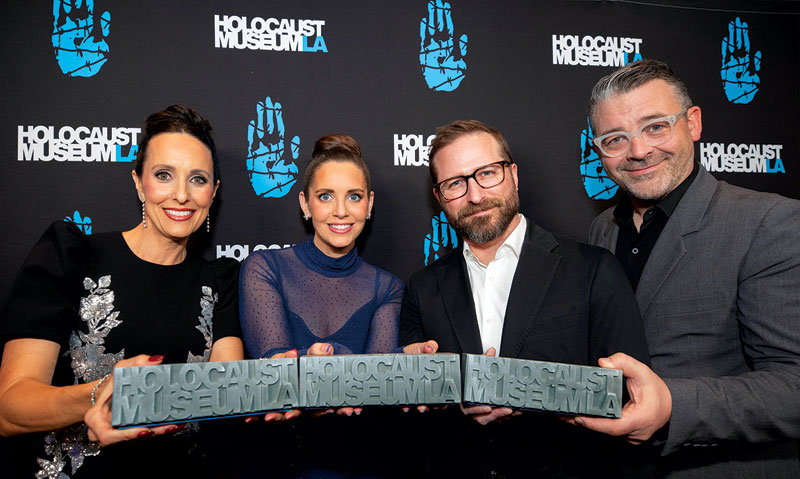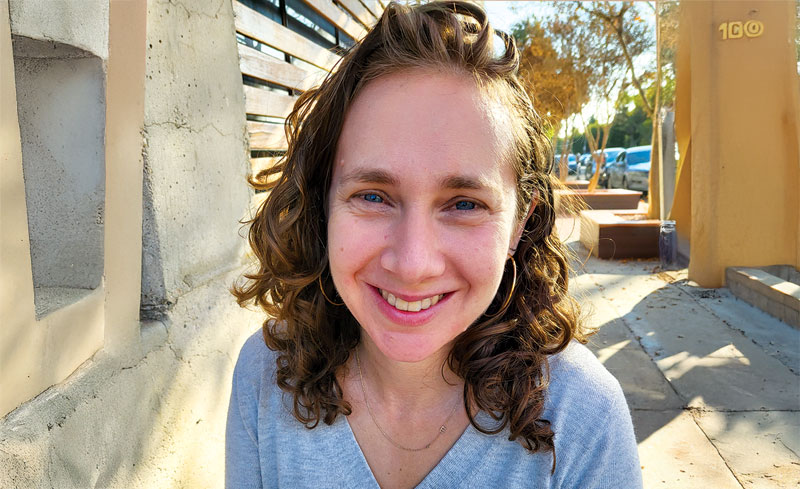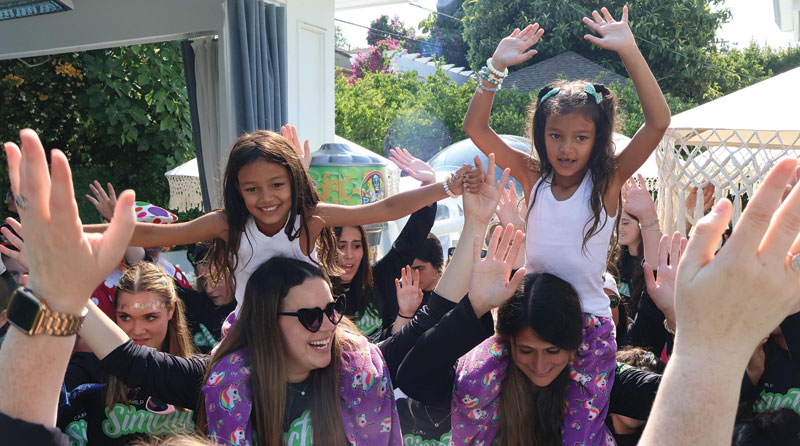After director Mike Nichols took his wife, Diane Sawyer, to the first screening of his six-hour HBO film of Tony Kushner’s epoch-defining, “Angels in America.” She said, “I know what this is about. It’s about being Jewish.”
She’s right, but it’s also about being gay in the latter 20 years of the 20th century. It’s about friendship and redemption. It’s about the feeling we all have in our darker hours that as a species, we could be on the verge of extinction. It’s about the struggle for the soul of America between the right and the left, and it’s about so many other things that it’s virtually impossible to describe.
What can you say about a mesmerizing six-hour epic that has a seminal scene where a gay, left-wing, 30-something, secular Jew sits at the bedside of the dead lawyer Roy Cohn (played with devilish wit and savagery by Al Pacino) saying “Kaddish.” When he forgets the words, the ghost of Ethel Rosenberg (Meryl Streep) steps forward to prompt him. She has come to witness the death of her nemesis — the man who helped strap her into the electric chair.
Minutes earlier, Rosenberg has sung Cohn to sleep, crooning “Tum Balalayka” in Yiddish shortly before he dies of complications from AIDS.
In the opening scene of this riveting marathon, an 80-year-old Chassidic rabbi from The Bronx Home for Aged Hebrews — played by an unrecognizable and thoroughly believable Streep with a perfect Mittel-European Jewish accent — eulogizes a dead woman with a moving pocket history of her whole generation that came through Ellis Island to found Jewish America.
And there’s lots more. When one of the central protagonists (Justin Kirk), who is dying slowly from AIDS, goes for his checkup, his “nurse” (played by Emma Thompson in one of four roles) suddenly launches into Hebrew and a siddur on a pillar breaks through the concrete floor and sears the Hebrew text in letters of fire.
Watching the scope of this production, which Kushner adapted from his Pulitzer Prize-winning plays, the only equivalent one could think of was Wagner. This is the Jewish “Ring Cycle” with shades of “The Dybbuk,” and biblical tales of prophets who wrestle with angels and themselves thrown in.
“There are some very surreal parts of it,” notes Streep, who like Thompson plays four different roles, “and it sort of lives very much in the here and now and in reality and the way that people talk to each other and react. And then there’s this whole other layer of … God … I don’t want to say the word ‘theatricality’ but it’s almost opera. It’s just on a bigger scale.”
There are flying angels, one of whom, played by Thompson, seduces both men and women, and a literal depiction of heaven.
“Try designing that,” said director Nichols.
Airing in two three-hour chunks Dec. 7 and Dec. 14 on HBO, this is one of the most extraordinary pieces of work ever to be shown on American television — guaranteed to offend absolutely everyone. If you think CBS’ “The Reagans” upset American conservatives, this will send them into apoplexy. But it is an equal opportunity insulter. Nothing escapes Kushner’s savage eye: America, liberals, conservatives, Nixon, Reagan, Jews, Mormons, African Americans. You name it, he nails it.
African American Tony-winner Jeffrey Wright, who was in the original Broadway cast, reprises his role as Belize, an AIDS nurse who lacerates a gay Jewish friend in a savage diatribe against America.
The sensibility is Jewish, gay and urban. The vast lily white, Marlboro Man, puritan country between the coasts is represented by the Mormons with whom eventually intercourse — both literal and figurative — proves impossible. Viewers will be moved, angered, shocked and horrified.
Said Streep, “A lot of people will watch it in order to be enraged by it. A lot of people will watch it not knowing what they’re going to see and will be enriched by it. A lot of people will be going, ‘What is that? Oh my God! What are they doing?’ And that’s good, too.”
There is full-frontal nudity, frank gay sex and brutal dialogue — much of it from the mouth of Roy Cohn, the self-hating closeted homosexual Jew who thinks he is neither.
Though set in the ’80s, the film doesn’t feel dated in the least. Both the gay and Jewish issues are as relevant today as they were then.
Nichols, one of the most prominent Jewish directors, who throughout his career has tackled the fierce and forbidding, “Catch 22,” “Who’s Afraid of Virginia Woolf” and “Silkwood” among them, said this is as good as it gets.
“When I saw the play I was overwhelmed by it,” he said. “For a long time I tried to figure out many things about its power and mystery and familiarity. It’s very hard to think of anything else that is about such crucial central issues, at the same time so immensely entertaining. You just feel very lucky that the feast comes along late when you never really expected that such a thing was possible.”
Streep agreed: “I don’t expect to get anything remotely as ambitious as this piece of work in my life again.”
“Angels in America” airs at 9 p.m. on Dec. 7 and Dec. 14 on HBO.
Sally Ogle Davis is a freelance writer based in Ventura.






















 More news and opinions than at a Shabbat dinner, right in your inbox.
More news and opinions than at a Shabbat dinner, right in your inbox.